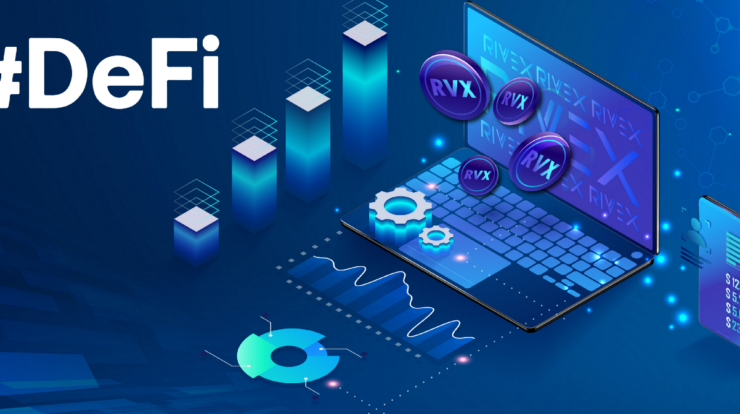
Decentralized finance (DeFi) uses secure distributed ledgers like cryptocurrency. The Federal Reserve and SEC regulate centralised financial institutions like banks and brokerages, which customers use to directly access money and financial services. Peer-to-peer digital exchanges allow DeFi to challenge this centralised banking structure.
DeFi removes bank and financial service costs. It lets anybody with an internet connection save money in a secure digital wallet and transfer payments in minutes.
ESSENTIALS
- Decentralized finance (DeFi) eliminates third parties and centralised institutions from financial transactions using new technologies.
- Stablecoins, software, and hardware enable application creation in Decentralized finance.
- DeFi infrastructure and regulation evolve.
Decentralized finance differs from centralised banking.
Financing
In centralised finance, banks and third parties hold and transfer money, charging fees. Credit cards are charged at stores, and acquiring banks send information about the cards to the credit card network.
The network then authorises payment from the bank. Merchants pay for credit and debit card use, so each chain member gets paid. Centralized finance handles everything from loan applications to local bank services.
Decentralized Finance
Decentralized finance eliminates intermediaries by letting consumers, merchants, and enterprises use new technologies to transact. DeFi employs software, hardware, security mechanisms, and peer-to-peer financial networks.
Software that records and validates financial transactions in distributed financial databases allows people to lend, trade, and borrow online. A consensus process makes sure that all users’ data in a distributed database is correct so that it can be accessed from more than one place.
Decentralized finance allows anybody, regardless of location, to utilise financial services. Personal wallets and trade services provide DeFi customers with more control over their money.
How DeFi Function?
Decentralized finance employs cryptocurrency blockchain technology. Blockchains are secure distributed databases. dApps manage blockchain transactions.
Users verify blockchain transactions in blocks. If these verifiers agree on a transaction, the block is closed and encrypted, and a new block with information about the preceding block is generated.
Blocks are “chained” together by their information, thus the name blockchain. A blockchain cannot be altered since changes to prior blocks influence subsequent ones. This and other security procedures make blockchains safe.
DeFi uses
DeFi relies on P2P financial transactions. P2P Decentralized finance transactions include two people exchanging bitcoin for products or services without a third party.
An algorithm connects peers who agree on the lender’s terms and issues a loan in DeFi. P2P payments use a dApp and follow the blockchain method.
DeFi allows:
- Accessibility: A Decentralized finance platform can be used by anyone with an internet connection to transact globally.
- Why low fees and high-interest rates? DeFi lets any two parties directly negotiate interest rates and lend money over Decentralized finance networks.
- Security and Transparency: Smart contracts and transaction data published on the blockchain are publicly viewable without revealing your identity. Blockchains are immutable.
- Autonomy: Decentralized finance systems don’t depend on centralised financial institutions and can’t fail. DeFi protocols’ decentralisation reduces risk.
- This website aids in Decentralized finance platform selection. We evaluate the leading platforms and their features. Discover 2022’s top DeFi platforms here.
Which DeFi platforms are best?
The top DeFi platforms are listed below. Our crypto specialists picked these and you can start in minutes.
#1. Nexo
Nexo is the greatest DeFi platform for earning bitcoin and fiat cash interest. Nexo offers 300 crypto pairings to trade with interest on 30 cryptocurrencies and 3 fiat currencies. The platform’s simplicity makes generating interest easy.
Moreover, Bitcoin and Ethereum provide 17% APY every day, whereas GBP, USD, and EUR offer 12%. Nexo is most well known for interest payments, although it also offers several additional Decentralized finance solutions. Trade Decentralized finance coins and gets immediate crypto loans.
Pros
- Interest in 30+ cryptocurrencies
- 3-fiat currency interest
- Paydays
- More than 300 tradeable coins
- Instant crypto loans
Cons
- The best interest rates require a Nexo token purchase.
#2. OKX
OKX is a prominent cryptocurrency exchange with superior decentralised financial services. Spot, futures, and margin trading allow you to purchase, sell, and exchange hundreds of coins. OKX’s trading fees vary by loyalty level.
The platform offers staking, borrowing, and other DeFi functionalities. Staking over 100 coins earns interest. Peer-to-peer lending and Decentralized finance allow crypto borrowing.
Pros
- Fiat money can be deposited and withdrawn.
- DeFi features
- High-APY available
- Simple trading platform
Cons
- Complex fees
#3. Coinbase
For novices, Coinbase is the greatest Decentralized finance platform. Its easy-to-use platform makes it a top choice for DeFi beginners. Yield farming rewards you for trading over 100 coins on Coinbase.
DeFi Yield enables you to lend crypto to third-party Decentralized finance protocols for incentives. Some currencies provide 2%–11% interest. For example, the Decentralized finance Yield is unavailable in the US.
Pros
- Easy-to-use
- Over 100 cryptocurrencies can be traded.
- Fiat deposits and withdrawals
- Wallet-integrated
Cons
- High fees
- altcoins unavailable
#4. Binance
Our experts recommend Binance for trading DeFi currencies. The world’s largest crypto exchange processes billions of dollars in trades daily. DeFi tokens are among hundreds of currencies. trade spot, P2P, or margin.
With comprehensive charting, technical indicators, and inexpensive transaction costs, traders love the platform. Binance offers Decentralized finance services, including liquidity farming, crypto lending, and staking. Binance Earn offers several of these options.
Pros
- trade hundreds of coins.
- Cost-effective transactions
- There are numerous DeFi tools.
- Indicators and charts
Cons
- Expensive fiat currency payments.
#5. EToro
Multi-asset broker eToro is the easiest Decentralized finance platform. Its straightforward design lets anyone use its Decentralized finance apps. Social trading lets you mimic skilled DeFi coin traders.
Smart portfolios are another eToro perk. These let you swiftly invest in eToro’s expert-selected portfolios. It has Ethereum, Matic, and other significant names in decentralised money.
Pros
- Deposit fiat currency.
- Low costs, no commissions.
- Sharing and copying
- DeFI-ready portfolios
Cons
- Region-specific.
- Withdrawal fees
DeFi platforms?
DeFi platforms, also known as decentralised finance platforms, offer financial services on public blockchains. Earn, borrow, and lend with DeFi. Decentralized finance makes these functions quicker, more efficient, and more autonomous.
Decentralized finance systems enable financial transactions for anybody. Exchanges and brokers frequently offer platforms. Functions, services, and features vary by platform.
How do DeFi platforms function?
Consumers can access several decentralised financial services and apps. Many conventional trading systems are owned by exchanges or brokers. Platforms like DeFi are useful tools for accessing decentralised financing.
Decentralized finance systems enable earning interest, borrowing, lending, and trading. Some platforms take fiat cash, while others require a wallet.
How To Select DeFi platform?
Like choosing any financial platform, choosing a DeFi platform involves several aspects. The Decentralized finance platforms should have the following features:
- Fees. All DeFi systems charge for services, which may mount up rapidly. Check the service cost schedule before choosing a platform.
- Services. Some networks offer only loans, while others offer several decentralised services. Check a platform’s services before using them.
- options. Check the coins on Decentralized finance if you wish to swap. Before registering, check if the broker or exchange has restricted options.
- Payments Some DeFi platforms allow you to deposit bitcoin from your wallet. Some charge for fiat deposits. Any platform’s payments page has the answers.
- Security Many consumers and platform operators worry about hacks, which are less common but still happen. Choose a secure platform.
- Wallets. Decentralized finance platforms, notably DEXs, require a wallet connection before use. Check first, as not all platforms accept the same wallets.
Platform risks associated with Decentralized finance:
Decentralized finance platforms provide many benefits, but also certain hazards. Platform pros and cons:
Benefits
- Financial decentralisation
- Initial deposits are low.
- Earning interest and borrowing at low rates
- Trade a variety of cryptocurrencies.
Risks
- Decentralized finance is fresh and rapidly changing.
- Some Decentralized finance apps demand considerable understanding.








